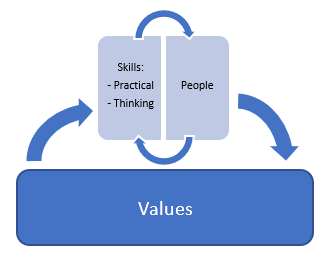by Claudia Fini, Chair Research Scholar
In contribution to the UNESCO conference on “World Higher Education” (WHEC), the UNESCO Chair in Bioethics and Human Rights collaborated with Portulans Institute and IIASA for the production of a policy brief entitled: Building a digitally ready education system with a bioethical framework – the new normal.
The Conference will take place in Barcelona, Spain from May 18th until May 20th with the aim of discussing and defining a roadmap for a new era of higher education. This roadmap will specifically address to the challenges faced by higher education, with special attention to the global disruption created by the COVID-19.
Against this background, our policy brief addresses the issue of digital education, often taken for granted or addressed inadequately in the growingly digital social context. According to our policy brief, digital education should be presented through the concept of digital literacy, which encompasses both practical digital skills (such as file management, use of software and coding), but also thinking attributes, aimed at the use of technologies in a safe and ethical way. Against this background, our collaboration presented a digital education model that develops through a bioethical framework based on the values of the Universal Declaration on Bioethics and Human Rights.
A concrete example of the application of digital literacy skills in education is represented by the increasingly common phenomenon of disinformation. In fact, like most digital technologies, one of the most difficult aspects in managing disinformation is its rapid spread, accompanied by the difficulty of implementing corrective educational measures of the phenomenon as soon as disinformation materials are generated. According to Dr. Nadejda Komendantova, disinformation must be identified immediately along with people’s general willingness to read correct information. To this end, debunking communications in order to correct disinformation often exacerbates the effects of disinformation. On the other hand, Dr. Komendantova believes that promoting critical thinking and socio-emotional skills in students allows to break the cycle of disinformation. These specific thinking skills should be promoted through various educational activities including, for example, outreach and awareness events focusing on disinformation on the Internet. Overall, critical thinking skills should reflect the creation of an information culture in which people do not rush to draw conclusions, but give themselves time to seek alternative sources of information.


